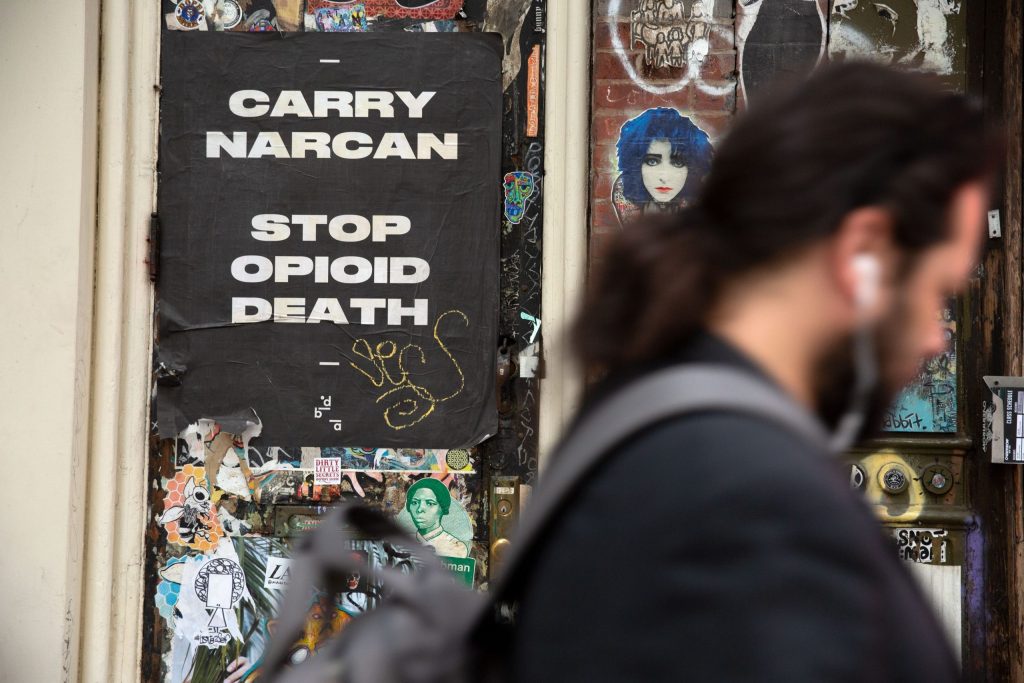This story was originally published by Healthbeat. Sign up for their public health newsletters at healthbeat.org/newsletters.
Overdose is the leading cause of pregnancy-associated death in New York City, the Department of Health and Mental Hygiene alerted health care providers in an advisory letter on Friday.
Overdoses accounted for 20 out of the city’s 58 total pregnancy-associated deaths (34.5%) in 2021, according to the most recently available city data. Of those 20 overdose deaths, 16 involved an opioid. Infection, cancer, hemorrhage, and seizure disorders were among the less common causes of death.
The Health Department defines a pregnancy-associated death as a death from any cause during pregnancy or within one year from the end of pregnancy. The department has conducted surveillance of those deaths since 2001, releasing annual data, as well as five-year reports from the Maternal Mortality Review Committee.
The city’s 2021 data reflect a significant increase from the nine pregnancy-associated deaths related to overdose reported in 2020 — and a jump in comparison to longer-term trends. From 2016 to 2020, 34 of the city’s 241 pregnancy-associated deaths (14.1%) were due to overdose, according to a Maternal Mortality Review Committee report published this fall.
The recent rise in overdose-related maternal deaths sits at the intersection of two of the city’s persistent public health challenges — maternal mortality and the opioid epidemic — and the racial disparities within both. The city’s maternal health crisis, which disproportionately impacts Black women, has become a top priority for the New York City Council. Meanwhile, recent data show that the overdose epidemic has started to stabilize in the city, but overdose deaths continue, particularly among non-white New Yorkers.
In 2021, Black non-Hispanic and Hispanic birthing parents accounted for the highest proportions of the city’s pregnancy-associated deaths (39.7% and 36.2%, respectively), while accounting for only 17.7% and 28.9%, respectively, of live births, according to city data.
Acting Health Commissioner Dr. Michelle Morse and two of her deputy commissioners said in the advisory letter that the city’s recent maternal mortality data should “serve as a call to action for all providers to play a role in reducing the risk of overdose among New Yorkers, especially for pregnant and postpartum people where the majority of these deaths are preventable.”
The officials attributed the increase in overdose-related pregnancy-associated deaths to increased isolation during the height of the Covid-19 pandemic and an influx of fentanyl in the drug supply in recent years.
The Health Department aims to achieve a 10% reduction in maternal death rates by 2030, through increased access to health care, social support, and sexual and reproductive health care, according to HealthyNYC, the department’s framework for improving life expectancy. Black women are four times more likely than White women to die from pregnancy-associated causes, according to the Health Department.
Morse and the other officials urged providers to screen for substance use, substance use disorders, and co-morbid mental health conditions, and to talk with patients who are pregnant and have opioid use disorder about initiating buprenorphine or methadone as soon as possible. The officials also advised continuing to screen patients for substance use throughout the postpartum period.
Eliza Fawcett is a reporter covering public health in New York City for Healthbeat. Contact Eliza at efawcett@healthbeat.org.

